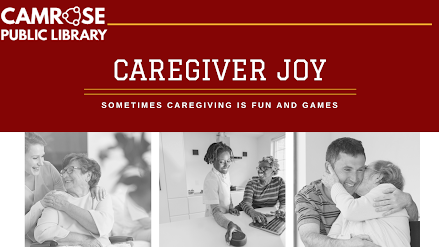The next two weeks are all about caregivers! There is no doubt that being a caregiver for someone living with dementia can be challenging and takes a lot of time, effort, and energy. However, it is also be filled with many moments of joy, often in unexpected places. In an effort to highlight the side that receives less attention, this week we will focus on caregiver joy. With the focus on caregiver burden and burnout, some begin to feel guilt over experiencing joy. There is no guilt in experiencing joy and happiness as a caregiver, in finding the humour in frustrating situations, or in celebrating the good. There is also no guilt in experiencing the negatives, such as caregiver burnout as we will discuss in the coming weeks. For now, let us begin to understand the joyful moments!
According to a survey conducted by National Opinion Research Centre, 83% of family caregivers say that it was a positive experience. Without joy in caregiving, this would not be possible. Caregivers report that different aspects of caregiving provide fulfillment, connection, personal growth, new hobbies, and laughter. Sometimes these benefits are immediately apparent, other times a shift in perspective occurs. It can be a positive experience to build a connection that wasn't possible prior to becoming a caregiver, as there may be more time to experience shared hobbies and to listen. With appropriate supports and information, the caregiver may also build many skills that they did not previously have and feel a sense of fulfillment in this. It can be helpful to celebrate the good days and find laughter in the strange moments that dementia can bring.
When resources are limited the positive impacts of caregiving are less likely to be part of the forefront. Resources are not necessarily only the available community services. The limited resources may also include knowledge, skills, social support, and respite. We at the library have available resources to help to build knowledge and provide a community space to find social supports. Tonight at 6pm we are virtually hosting Dr. Parmaar and Dr. Anderson, if you are seeking resources for yourself or others, this is an event to check out! We will also be posting a summary on our blog next week if you are unable to make it. The library is also home to awesome educational resources to help improve knowledge and skills. Our book recommendation is The 36 Hour Day, which provides plenty of useful resources, tips, and information for those caring for people living with dementia.
Sources Consulted
https://alz.org.sg/finding-joy-in-caregiving/
https://www.apa.org/pi/about/publications/caregivers/faq/positive-aspects
https://abridgebetweenthegap.com/ok-to-laugh/
Catherine Quinn, PhD, Gill Toms, DClinPsy, Influence of Positive Aspects of Dementia Caregiving on Caregivers’ Well-Being: A Systematic Review, The Gerontologist, Volume 59, Issue 5, October 2019, Pages e584–e596, https://doi.org/10.1093/geront/gny168
